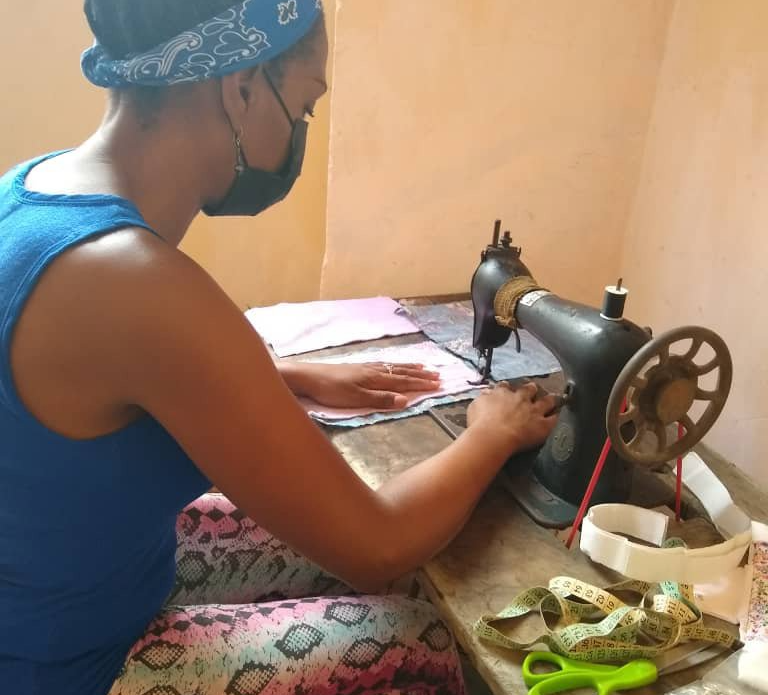Adapting and Achieving during Covid
1. How we provided access to education support in response to Covid
We connected with our partners to see what challenges they had from Coronavirus that we could help directly with. It turned out that many students in the countries we work with did not have access to any education whilst in lockdown due to the digital divide. So we provided solar powered radios so that children in those remote areas could listen to their lessons which their governments were broadcasting by radio.
We also discovered an increase in violence against women, so we worked with our partners to set up Gender Based Violence workshops to bring this to light and work on ways to make women and girls safer in school.
In Cuba, women delivered the Positive Periods Programme via WhatsApp, connecting 20 women’s organisations who were learning new skills together during lockdown.
2. How we supported the Covid Stay Safe message with resources for educators
Lockdown has awoken a lively discussion about education and school. This is good for us as we are always keen to promote and foster conversation about education, and access to it. In support of the Coronavirus Stay Safe message, we published a resource pack called ‘Learning from Home’ which helped lots of parents and educators by pulling together all the useful resources they could be using for home learning into one place. We also used Social Media to connect with parents and educators, ask questions and offer practical support through our posts.
3. How we increased access to education online
As we were not able to attend events and give talks, we developed a Life Long Learning webinar series (free or by donation). We linked this webinar series to raising awareness of the digital divide, as not everyone in the world has access to online learning.
People across the globe were at home and were looking to learn about new things online.
We hosted storytelling sessions “Myths and Stories” with students from The Gambia, Haiti, Sierra Leone and the U.K. working together on-line to strengthen understanding between cultures. We also encouraged students in the UK and Poland to share poetry with each other.
4. How we helped people stay connected through an education dialogue
We thought at first that the webinars would just be informative, but we allowed ourselves to experiment and discovered that the post popular webinars were those that gave people the chance to be actively creative in ‘creating together’ webinars. In addition to webinars about Human Rights and Safeguarding we hosted webinars where the participants wrote poetry together, made art and showed each other what they had made, had discussions, watched films together with a live Q&A after. This has helped to build and strengthen our ‘Education for All’ community.
We have also created some Digital Charity Gifts for people to buy and share with their loved ones, this gives more people access to supporting us in a fun way, with a completely environmentally sound gift. We’ve had some lovely feedback to say that it has already helped people to connect, smile and say thank you.
5. How we helped people smile and gave hope
We increased our social media posts during lockdown to keep the conversation going about the positive impact we are having through the work we do. Our aim was to spread hope and positive messages about the successful impact we have been having to counteract some of the depressing statistics we have every night on our TV screens. We also posted ‘Smile Posts’ of children smiling and novelty treats like stop motion, and time lapse videos with positive quotes, so that there would be something to make people smile when they saw our feed. We now have a Good News email that is designed to encourage everyone to share positivity and hope. Ultimately, we need hope, and positivity, to make our dreams of education for all a reality.
The main point is this, Covid has been difficult for many, but many of us have made a stand for helping others and spreading hope and positivity. There are actually many fantastic things happening in the world right now. Many organisations, as well as us have been working away all year to make great things happen, because we want to encourage people to smile, have hope and most importantly continue learning and connecting with each other.
Thank you for reading and please leave a comment to let us know what was the best thing you saw happen last year.






